Looking for social media marketing strategies for ‘boring’ industries that actually work? Does this sound like you, ‘My company is boring, no one will be interested in what we have to say on social media’? If so, listen up!
In this episode, we’re going to share how you can implement social media marketing strategies that your audience will love, no matter how boring you are.
Some of the case studies we discuss from traditionally ‘boring’ companies have generated new business opportunities worth £1M+ which is crazy!
0:00 – 1:06 Introduction
1:06 – 2:52 Thank You Joe Glover
2:52 – 5:50 What Is A Boring Company?
5:50 – 9:45 The Nuts And Bolts Of It All
9:45 – 12:47 Make Your Customer’s Customers Happy
12:47 – 15:47 Our Marketing Secrets
15:47 – 18:31 What Actions Should Boring Businesses Take?
18:31 – 20:11 Big Mistakes
20:11 – 21:05 Peanut Butter Rhymes With Nutter
21:05 – 24:16 Let’s Talk Results
24:16 – 25:11 Bottom-up Approach
25:11 – 28:51 Shine Light On The Shit Stuff
28:51 – 30:05 Look Outside Of Your Industry

Pat 0:00
Pat the podcast editor here. Are you trying to market a business that’s just a bit boring? But don’t worry, because in today’s episode Dan and Lloyd talk about ways you can market traditionally boring products.
Dan 0:13
What would you classify a boring company as?
Lloyd 0:17
I see what you did there Dan… asked me the question, so I get all the haters.
Pat 0:21
and Dan reveals the theories behind marketing, suggesting it’s not about the product it’s about the audience.
Dan 0:28
Just producing content about your nuts and bolts isn’t going to be interesting, but producing content that ties your nuts and bolts in with Susan’s favorite TV show that she’s talking about like, I don’t know… Love Island will work much better.
Pat 0:38
So there you have it. It’s not all sports cars and luxury items in the world of marketing. If you have a run-of-the-mill product, you want to advertise to the masses. This is the episode for you. This is episode 110 of the Business Anchors podcast.
Lloyd 1:06
How can you stand out on social media In traditionally boring industries Dan?
Dan 1:10
Good question Lloyd! This episode is going to be all about that. First of all, I just want to say thank you to Joe Glover from the marketing meetup because he inspired this episode.
Lloyd 1:20
Has he? How did he inspire it?
Dan 1:21
Well, I had a recent chat with him. I’m going to be doing a session for the marketing meetup about Tiktok, and he was talking about some of the webinars they run and he mentioned that one of their top episodes was this topic. When he said it, it got me thinking like recently, loads of new customers that we’ve onboarded at Knowlton have mentioned, ‘I didn’t realise you could do creative stuff for boring companies until you mentioned it recently and I was like, we need to do an episode talking about how boring companies or industries can produce creative marketing campaigns.
Lloyd 1:56
Yeah, it’s interesting though, I find it funny how people have jobs, have businesses, whatever and they think of themselves as boring. It’s just the reality that we all do different stuff.
Dan 2:11
I think historically at Knowlton we’re kind of known for doing the more ‘out there’ like ‘wild’ creative marketing campaigns. If you do work for a traditionally ‘boring company’ like people have already seen what we do and think ‘Oh, our company wouldn’t do that but what people don’t know is we do like less wild stuff. We do cinematic content, and it’s not all about being you know, really on the mark.
Lloyd 2:38
I think people feel limited and don’t know that, like, oh, no, I’m a boring business so I can’t do good marketing stuff. I just have to do the traditional stuff that isn’t working. It’s like no, that makes no sense.
Dan 2:52
What would you class as ‘a boring company?’ Or like a boring industry?
Lloyd 3:01
I see what you did there Dan, you asked me the question so I get all the haters. Thank you for that. There are a couple of 1000 Haters for me. Come at me. Health and safety stuff. So yeah, okay, a few more people hate me. Does anyone want me to create more haters for myself? Are you gonna chip?
Dan 3:24
Okay, so you’re talking about boring industries.
Lloyd 3:29
Recruitment?
Dan 3:30
Yes. Yeah. I mean I think it’s two things. Exactly what you’re saying, boring industries.
Lloyd 3:36
Well, you’re saying it. Yeah.
Dan 3:39
So the finance, accounting stuff like that.
Lloyd 3:42
Oh, come Dan.
Dan 3:45
But I also class it as boring products? imagine if a company that made nuts and bolts approached us. Can you do a creative marketing campaign to promote our nuts and bolts class? I class that as a boring product.
Lloyd 3:50
We all buy boring stuff, don’t we? We all wipe the surfaces of our kitchen with something and we will wipe up bums and we all do boring stuff.
Dan 4:08
Where are you going with this?
Lloyd 4:14
Nowhere…
Dan 4:09
Things like nail clippers, and hangers. Imagine trying to promote hangers.
Lloyd 4:18
Are we just listing more and more people to hate us?
Dan 4:22
Tea Bag organizers. Have you seen that?
Lloyd 4:27
Right, sorry. Sorry. It’s a product. Yes.
Dan 4:31
Yeah.
Lloyd 4:34
Event Planner?
Dan 4:35
Nope. I looked up boring products and you can get tea bag organises where you put all your tea bags into like little plastic things.
Lloyd 4:43
Okay. Yeah, I’ve never seen that. That’s why I didn’t get that.
Dan 4:48
So yeah, they’re the kind of two ways I see boring companies or industries.
Lloyd 4:53
Okay, and why are we doing this whole episode? Why do people think it’s hard to market those boring things? If you know what I mean, why isn’t it just like any other business?
Dan 5:07
I think it’s difficult because if you think about society, everyone is fighting for your attention. It’s not just cool brands. It’s not like Nike, Adidas, Vans and whatever cool brands you think of fighting for your attention. It’s your friends. It’s your family. It influences you to love. These are all people who are there on your social media, creating content, trying to captivate your attention. So if you manufacture nuts and bolts, it’s probably quite daunting to think. I’ve got to compete with the likes of this person’s mum or brother or favorite influencer to create content. So it’s understandable why traditionally boring companies think this.
Lloyd 5:50
Yeah, like you’re saying you sell nuts and bolts and you’re trying to sell them, someone’s got to want to spend an extra few seconds looking at some kind of piece of content about nuts and bolts in some way over another piece of content from a brand that they like, or family member or friend or influencer.
Dan 6:12
Traditionally a lot of platforms and algorithms work by serving you content from people who you’re showing that you’ve got an interest. So like, it’s very difficult to initially kind of build a relationship as a nuts and bolts company with John Smith.
Lloyd 6:31
Even exciting brands and what people would see more as ‘interesting’ products or services or industries, as everything’s exaggerated in marketing and social media like you’re always showing the best stuff and the good side of things. So it’s not even just competing with the normal level of things. It’s marketing, and it’s social. So yeah, everything’s exaggerated. Like, even with this podcast, we have to remind ourselves to like, amp up the energy. Yeah, a bit more. Because when you’re not just having a normal chat, it’s weird. You have to amp it up. So you’re competing with an amplified level of coolness.
Dan 7:12
You have to think logically like, people don’t go on social media to see content about your nuts and bolts company, like think about it logically, why do people go on social media? They go on there to connect with friends and family to consume content from interesting influences, to get some level of escapism through being entertained and that kind of thing. So it’s daunting, as I keep saying, a nuts and bolts company, but it is daunting as a boring company to think, ‘how on earth am I going to create content that people want to consume?’ The difficult thing is most brands, their key objective is to sell more stuff, right? So their key objective is to sell more stuff. So lots of brands go to the root of right, I need to sell more nuts and bolts. So I’m going to create more content talking about the great features of my nuts and bolts. ‘Ooooh, it twists good, ooooo, It’s soft on your hands when you twist the bolt’
Lloyd 8:12
We haven’t seen any good ads, have we?
Dan 8:13
Exactly. However, that’s not the right approach, I think. No matter how great the features are of your nuts and bolts, still, no one’s going to be that interested when they’re scrolling social. You need to flip it on its head and like a reverse engineer, why is John Smith on LinkedIn or Tiktok or Instagram? What does he want to consume? And then you can reverse engineer and start to create content that he actually or she wants to see. Tie in your product cleverly and we’re gonna talk through some of these examples in a second.
Lloyd 8:47
The person you’re trying to get in front of and the platform that you’re creating content for, rather than starting with whatever you’re trying to sell, and what you want to shout about it.
Dan 8:59
I honestly think like analyzing us as an agency, I think this is how we’ve been successful because as a marketing company, we’ve focused on how we can have a positive impact on our customer’s customers. This is one of our key values, how do we have a positive not just on our customers by selling more of their stuff but how do we create content and run marketing campaigns that their customers enjoy consuming? And you see this reflected in our content. Everything we do is focused around what marketers from brands want to hear from us. You know, lessons we’ve learned from running campaigns, educational content, entertaining things, and taking the piss out of the marketing industry. They don’t want to hear us sit here and say, Hey, you should come and be a customer of Knowlton because we’re brilliant.
Lloyd 9:45
The amazing thing about what we do here of making sure our customers customers are happy is that it provides the people we work with with a much more long-term positive impact because even if our client’s potential customers aren’t ready to buy, so like ‘oh, I don’t need that new beard trimmer yet I’ve got a decent one already or ‘Oh, I don’t need health and safety gloves because my contracts not up for another year’ because we’re creating content that they want to consume, or they enjoy consuming, they’re left with a positive thought about the brand and then when they need that and when they’re ready to purchase, they come back. I think sometimes, there are ways that you can get immediate sales that might produce better short-term results, like the whole disruptive marketing of like, let’s just get this crap out in front of as many people as we can, as cheaply as possible and we’ll get a lot of sales but actually, you’re also kind of alienating or annoying loads of future potential customers with that tactic rather than leaving them to feel like I want to buy when I’m ready when my beard trimmer breaks, I’m going to get a Wahl Aqua Blade.
Dan 11:01
Just to make this clear, it is important to create content about your product that you’re buying as well, going the other way, like, yes, you need to create content that John Smith is interested in and isn’t about your boring product but once he sort of seen that content that’s drawn him in, you then do need to strategically sell whatever you’ve got to offer. So it’s not, it’s not just about creating entertainment for example so this is very meta, but in this podcast, we focus on sharing our best insights possible, things we’re learning in the marketing space that will help other marketers, tools, app strategies that we’re learning but also, we’re talking about our client campaigns, the results we’re getting for our current customers, showing examples of how we as an agency are promoting boring companies. We’ve got a strategic focus on this podcast, it’s not just about creating fun, entertaining content, you’ve got to have both, like both have to work, it needs to be fun, and entertaining, but also it needs to sell what you’re doing
Lloyd 12:04
That works for people at different stages of the marketing funnel. So like, if we’re going meta and using this podcast as an example. Some of you will be listening, and you’re just listening for the value we’re providing or the entertainment, feels cringy, whatever you come here for and you might be like ‘Yeah, I’m not interested in working with Knowlton, or like Lloyd and Dan in any way. I’m just here to get this value’ but there’s also some of you listening that are like, Yeah, I used to be like that. But actually, now my boss has come to me, and we need to do a marketing campaign and I’m looking to work with someone and actually, then it’s working when we’re talking about these details of how we work with people. It’s like ‘oh, yeah, actually, that’s what I need’
Dan 12:47
You know what, both of those categories of listeners, being meta again, of his podcast are just as important as each other. So most of you listening, like most of you won’t ever become a customer of Knowlton but you will become an advocate of Knowlton and you will share something with someone that then shares something to someone else that then has someone else who they know who works for a company that is looking for our services. One of the key questions I hear and things that come up is, why are you giving so much away all your secrets and all that crap? The reason is, yes, most of you won’t become customers, but you will become advocates and that is just as valuable for your company as a customer.
Lloyd 13:31
That nuts and bolts awareness ad entertained those people in some way and they don’t want to buy any nuts and bolts at the moment. They then tell their uncle ‘Oh, I saw this great ad for these nuts and bolts’ and then he becomes a customer, it doesn’t matter that that person isn’t gonna.
Dan 13:49
Let me give you a really weird example of something that has happened in our company recently, a company approached us from Australia. We’ve recently converted them as a client. I got a message, a can’t remember the guy’s name from Australia saying ‘Hey, oh, by the way, I recently was speaking about you in a networking event I went to in Australia’ and we’ve recently had a number of leads and clients come from Australia and he’s not a customer of ours, but he’s become an advocate.
Lloyd 14:35
That is crazy, isn’t it? And it is also weird that we’ve got a couple of clients in Australia now. We’ve had so many of these over the years. The long-term kind of look at things and being like, I don’t need to sell to everyone right now because we’re creating this, like, the infrastructure of people that are like this product or service, and I’m going to talk about it and one day I might become a customer or my friend might or my colleagues might
Dan 15:05
Do you know though, it is way easier to talk about having that long-term approach and having it because all of us need to pay the bills. So especially when starting as a new business, we don’t have this issue as much now at all because we’ve built up a brand over the years, and now have opportunities to come to us. Yeah, when you’re starting, and you have to pay the rent, and you need to get some money. It’s very difficult to have that long-term approach and I think it’s easy for us to sit here and have this advice of like, have the long-term approach, produce content that provides value and attracts customers, when really you’re sitting there thinking, I need a customer right now because I need to pay the bills.
Lloyd 15:47
So traditionally boring businesses listen to this podcast now and think ‘Yes! this sounds great but like, what, what shall I do? What’s your advice? What do I do now?
Dan 15:58
Good question. So I’ve got a number of pieces of advice, and I’m sure you have too. The first thing is, to truly and this is classic marketing 101 but truly understand who. Who is it you’re trying to convince to do something? I don’t mean the classics like ‘Oh, it’s a 40-year-old female who is interested in this and that’s it’s like truly understanding what that 40-year-old female talks about with her friends when they’re picking the kids up from school. What videos are they sharing in their WhatsApp group? What TV shows are you currently watching and chatting about? truly understanding the WHO will then help you create content. It isn’t just about your boring nuts and bolts, it’s about things to do with their interests, rather than yours.
Lloyd 16:43
That’s such a big thing and I think a lot of bad marketing is based on these. A lot of personas are used in marketing which can be useful sometimes saying ‘this is one of the people, the types of people we want to sell to female 40 years old, has one or two children, has a part-time job’ and it’s like very surface level things, but it’s not knowing who you want it to be. Dan’s nuts and bolts that you want to be thinking like ‘oh, our ideal customer is an independent business person, like they’ve got their own van’ and it could be like ‘oh, all of those guys or girls have their lunch breaks in their van and this relatable thing that is never any cup holders, never enough cup holders in their vans’ or like you get to know them on that minute level. Like what are they laughing about? What are they joking about? What are they taking the mick out of each other about? And what were they related to? And then how can you kind of use that?
Dan 17:46
So these are just some ways we’ve done this, practical ways of actually understanding the who. If you’re a small business, you probably don’t have the budget to pay for focus groups and that kind of thing. But like, think about who you know, in your network that is in that target demographic. This is like a low-cost of the free way of figuring out who do you know, in your friends of friends, family, businesses that you know, that’s in that target demographic that you know, well enough to say, ‘Hey, can I have a quick conversation with you and ask you like, what you talk about when you’re having your lunch break, and you don’t have cup holders’.
Lloyd 18:20
Don’t make the mistake that a couple of our clients have made over the years of you being outside of that demographic, asking those people, but then feeling that you know better.
Dan 18:30
Yes, that’s the thing.
Lloyd 18:31
This is a mistake we’ve had with a couple of clients, it’s caused them to have problems and to get much worse results than they could have done. Say you’re a man in your 40s and you’re into sport, and you’re selling a product to female teenagers that don’t like sport, don’t think that you know better. Even if you’re very intelligent, like, I think we’re intelligent but we still aren’t going to know those things without asking those people. That is a common mistake. Yeah, you need to try to avoid also
Dan 19:05
Talking about mistakes. Another mistake that brands make is they understand who. So they get who their target market is and they create content about their interests, but it doesn’t tie into their brand at all. So for example, let’s say you, target accountants, as a target demographic. Through your research and speaking to accountants, this is a really weird example but let’s say you find out that they’re all interested in peanut butter. Really simple example. This is random. If you just started to create content about peanut butter there is no way to tie in with what you offer to that target demographic. So let’s say you offer accounting software to accountants, and you just start posting like, oh, peanut butter is good, isn’t it? I know this is a good example. Just go with me, just roll with it. Whereas if you started to create content that analysed the top peanut butter companies and how much tax they pay, then you can start to create content that is tapping into the interest of your target demographic but also tying in cleverly what you do.
Lloyd 20:11
The more effort you put in, basically, the better it will be. So I’ve seen a lot of posts of people trying to do this like Dan saying, but they don’t put the effort in. So they just take a picture of them eating peanut butter, and then they write a post like a peanut butter rhymes with Nutter, I must be a nutter to work in pensions. It’s just like a lazy link.
Lloyd 20:31
It’s such a shit example but I love it.
Lloyd 20:33
I know that’s exaggerated but that’s the thing. It’s like a lazy link to try and make it interesting. Like Dan said, if you went into analysing three peanut butter companies and how their pension plans for each year are so different, you compare them, then it’s like, oh, this is interesting, something that I would want to know about, rather than just that tedious link. It doesn’t make sense because unfortunately, a lot of people try to make these boring entries. Interesting. But they don’t put the time or effort into it.
Dan 21:05
Another example. Another tip, if you have a boring company or boring industry, is to focus on the results your boring thing provides. An example of this is we recently worked with a safety glove company, and we’re getting some amazing results in terms of the opportunities we’re generating for this company. Some of the content that we’ve produced focuses on data, showing the percentage of lives saved or the number of people’s lives saved by using these gloves. So it’s focusing on either the output of like, what it’s achieving, or what it’s stopping happening. If it’s something negative, like, for example, the safety gloves, they are stopping people dying by stopping accidents, or it could be an output like helping someone get more hair if it’s a hair loss thing.
Lloyd 21:57
With the safety gloves, that is how to know the person thing you said about originally we connected them with them on different levels. So we know those health and safety managers, they firstly, like Dan said that it’s reducing deaths and accidents. You can relate to them on the emotional level. For example, you have the opportunity for people not to die. That’s one way that’s like yeah great, but also getting to know these health and safety managers even more. They all have targets to reduce accidents and that sort of thing. That’s probably related to bonuses, pay rises, promotions, like for that part, that decision maker, kind of career opportunities, that is incredibly important to them. So actually, changing safety gloves or reducing risks to that person could be, I can move house and my family can have a better life because that’s gonna get me that promotion. So it’s understanding what they want at a deeper level
Dan 22:51
Are their drivers? this is relating to that, this is that point again; understand the who. What are their motivations? Like, what are they getting judged for by another company that you can then tap into in your content to make sure you’re like ‘Oh, you need to hit these targets to save a percentage of people’s lives a year’ our product saves a percentage of people’s lives a year.
Lloyd 23:13
To change suppliers for something like that, it’s probably quite annoying for those people, it’s going to take work like it’s going to be an effort to do that, rather than just stay where they are. So you need to give them good enough reasons for moving and like we said, it might be personal drivers of like, that’s going to help me in my job, it might be the emotional things, it could be other things. You’ve got to get that in front of them to be able to make them make those decisions.
Dan 23:36
Sticking to this example, there’s another subtle thing that we did in the content for these ads that I think helped and this is probably a bit of a weird example but, in the videos for the safety gloves, we don’t if you remember, Lloyd, we showed a clip of someone speaking to their boss presenting this solution, which was the gloves, showing them what it looks like to then to go and present to your boss and say ‘we should try these gloves. That subtle thing of like them seeing that thinking ‘Oh, I could go and present to my boss, how we could use these gloves’ I think is a clever way of like driving action and getting me to do it by showing ‘this is how you do this, go to your boss like this’
Lloyd 24:16
So that it’s more of like the bottom-up approach of like, not necessarily targeting the decision maker, but targeting the people that will go to the decision maker to be like ‘you should do this’. One of the things that we thought about was, if they’re injured, they’re gonna have to be at home for weeks on end. They’re gonna be bored, there’s only one line and a short thing, but we had a guy and his young daughter had put makeup all over his face and he was like, dressed as a princess and we just kind of had a jokey line of like, you don’t want to be stuck at home with your kids for two months getting over an injury but it’s like it’s reinforcing the point and subtle things like some people they’d be like, Oh, what a horrible thing. You don’t want to be with your kids but it’s kind of like actually, that type of person doesn’t want to be stuck at home, they enjoy going out to work and having some of their own time.
Dan 25:11
Another tip for you boring companies listening to this, which we’ve implemented and has been highly, highly effective, is to create content that pokes fun or shines a light on shit stuff that happens in your industry. So like, we’ve done this with loads of different companies. So for example, we’ve done this with an insurance company shining a light on the shitty things that brokers do in the insurance world, to make it a bit more interesting than, hey, we sell insurance, it’s like that relatable thing here is shit stuff going on in your industry. Another example, a property development training company that we worked with, we shine a light on shitty trainers that try and sell you courses that are loads of money and don’t help you like, it’s trying to think of creative ways of making it a bit of fun and interesting, rather than just ‘hey, we sell this training’.
Lloyd 26:07
There are interesting people behind every boring business. So giving people more of a like, behind-the-scenes look of what’s going on and going on and the people in the business is something that is an easy way to kind of get that across. I know that you know, if whoever’s making the judgment, not me, probably Dan that like to say Insurance is a boring industry. I know that not everyone that works in Insurance is a boring person. There would be really interesting people and like any other office environment or work environment, there’s going to be interesting stuff going on to talk about and show and all that sort of thing.
Dan 26:42
So I guess just to finish off, if people are looking for examples, it’s always useful to see examples of boring companies that are doing it well. I’ve got a few but can you think of any examples of like, content from boring companies or marketing examples?
Lloyd 26:59
My only one, and I don’t think you’ll like it, because I think it was in your notes. Dollar Shave Club we always go to that example. They kind of were one of the first ones to go out there and sell a boring product in such an outlandish way. If you haven’t seen the Dollar Shave Club adverts look at them straight away, and you’ll realise what we’re saying. Like I said at the start those boring products that we all use that we use every day, but don’t seem interesting. They go completely crazy with it and create something entertaining to watch and like, you know, we’re still talking about it now, years later from when they produce these ads. Of course, it’s having a long-term positive effect.
Dan 27:40
That’s the classic example. Every boring brand comes to us and says we want to Dollar Shave Club ad. Yeah, so it’s like a classic.
Lloyd 27:48
What are your others?
Dan 27:50
That was one of mine. I also like the Old Spice ads with the guy on the horse, that’s just aftershave but they make it interesting and entertaining and fun also Oatly, It’s not just their videos like their print ads and stuff are really interesting they are quite a tongue in cheek and witty and fun and it’s just oat milk. There’s another there’s another ad. You’ve all got to write right now. Google this flea market Montgomery video. We did a pest taking this a while ago but it is a guy promoting a flea market by doing a kind of weird song.
Lloyd 28:31
I would say maybe don’t be inspired by that one. No, but that place is shut down now.
Dan 28:37
It went viral. It’s just thinking of creative ways that are like, classic and as cliche ‘outside the box’ and I guess another tip, is we get some of our best ideas from places like Tiktok outside of our industry.
Lloyd 28:51
If you promote your nuts and bolts company, like every other nuts and bolts company, you’re gonna get the same level of sales. If you want results that are outside of that you need to look outside of your industry.
Dan 29:02
and work with Knowlton.
Lloyd 29:05
Yeah, that’s always what you should do. Cool. Nice. Thank you, Dan, and just so you know, Dan came up with the idea of this podcast and notes and stuff. So, he wrote down the boring industries to speak about, so it’s his
Dan 29:23
It’s him, try and speak better mate.
Lloyd 29:25
Okay. All right. It’s Dan speaking the one that has offended you because I remember one time we did an episode about
Dan 29:36
accountant.
Lloyd 29:37
accountants and I got a lengthy hate comment. So I just want to be clear. I’m not saying you’re boring…Dan is.
Dan 29:46
I’ll take the rap for it, it’s fine.
Lloyd 29:48
Okay, we will see you in your ears next week.
Hopefully, this episode has given you an insight into how you can implement effective social media marketing strategies no matter how boring you are! If you have any more questions, then why not start a conversation with us here at Knowlton.




























We've always wondered if anyone actually looks at the footer on websites. We don't think many people do. So if you're reading this... You're special.
Knowlton HQ, Unit 62 Maple Leaf, Manston Business Park, Ramsgate, Kent CT12 5GD
© 2024 Knowlton | UK. All Rights Reserved.